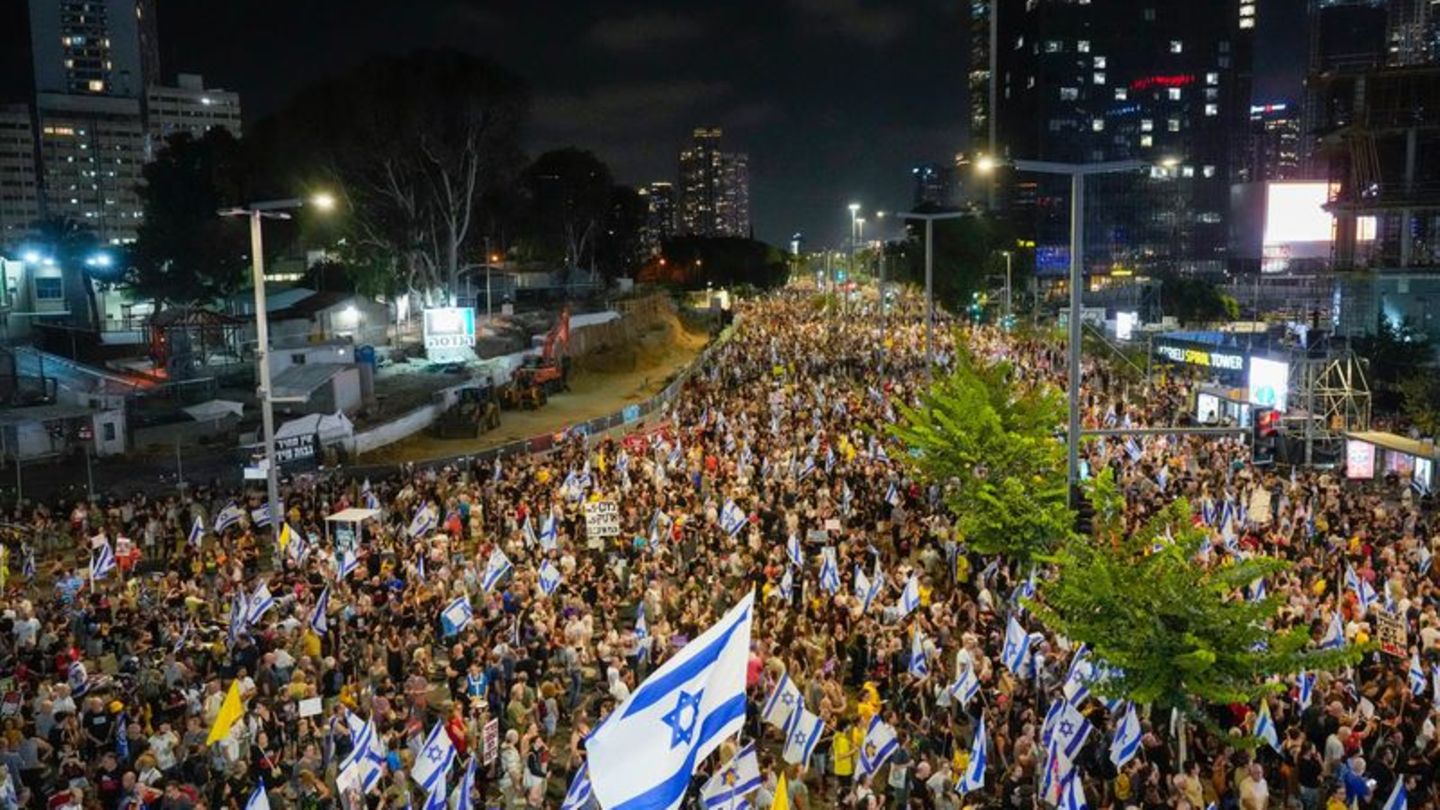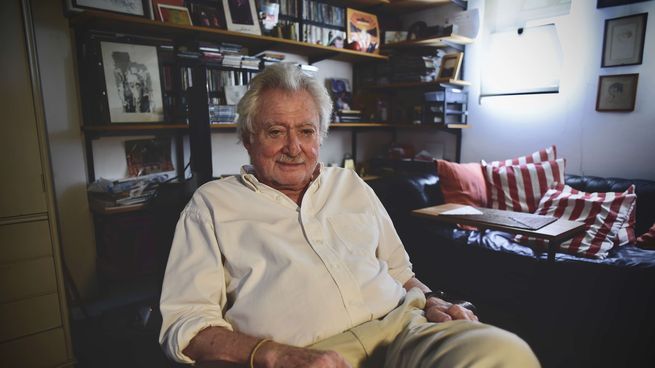Israel’s Prime Minister Netanyahu is under pressure in his own country. Critics are finally demanding an agreement to release the Hamas hostages. Negotiations on this are stalling, but are expected to continue.
While Israel’s army continues to crack down on the Islamist Hamas in the sealed-off Gaza Strip, new mass demonstrations are taking place in Israel. At the main rally in the port city of Tel Aviv and further protests in other Israeli cities, participants demanded an agreement with Hamas to release around 100 hostages. According to local media reports, the organizers spoke of 500,000 demonstrators in Tel Aviv alone.
“We must not sacrifice any more lives, we must not sacrifice them (the remaining hostages),” said the relative of a hostage shot by the Islamist extremists at the rally in Tel Aviv. “Their time is running out.”
Sadness and anger
Hamas terrorists killed Carmel Gat and another woman and four men last week with close-range gunfire. The Israeli military found their bodies in a tunnel in Gaza, it announced last Sunday. “The six would be here with us today if (Israel Prime Minister Benjamin) Netanyahu had said yes to a deal,” Gat’s relative shouted to the crowd with sadness and anger in her voice.
Hamas and other Islamist terrorist groups invaded southern Israel on October 7 last year, killing more than 1,200 people and taking around 250 others hostage in the Gaza Strip. The unprecedented massacre triggered the Gaza War. According to Israeli figures, 101 people are still being held captive by Hamas, although it is unclear how many of them are still alive.
The indirect negotiations for their release, in which the USA, Egypt and Qatar are mediating between the conflicting parties, have been going around in circles for months without any results. The multi-stage agreement being sought would also include an end to the war, the withdrawal of the Israeli military from the Gaza Strip and the release of thousands of Palestinian prisoners from Israeli prisons.
Negotiations to continue
Critics accuse Israel’s Prime Minister Netanyahu of trying to torpedo the conclusion of such an agreement with excessive demands – such as the permanent presence of the Israeli military in strategic locations in the Gaza Strip. Netanyahu governs in a coalition with right-wing extremist parties that reject any concessions to Hamas and threaten him with the collapse of the government coalition.
The head of the US foreign intelligence service CIA, William Burns, has announced further indirect negotiations. “We will present this more detailed proposal in the next few days, I hope, and then we will see,” Burns said at an event hosted by the Financial Times newspaper in London. He usually leads the US delegation at the indirect negotiations, which usually take place in Cairo or Doha.
US delegation leader hopes for breakthrough
US media recently reported on a planned final proposal for an agreement. If both parties to the conflict do not accept this, it could mean the end of the negotiations, it was said. According to Burns, there is an immense amount at stake – including for the future and security of the entire Middle East region.
The necessary progress in the negotiations is ultimately “a question of political will,” he said. He deeply hopes that the leadership of both parties to the conflict will make the necessary tough decisions and make political compromises, Burns said.
More deaths in Lebanon
Meanwhile, the military clashes between the Israeli army and the pro-Iranian Hezbollah militia in Lebanon continue. During the night, sirens blared in the border town of Kiryat Shmona in northern Israel, the Israeli military announced. The Times of Israel reported, citing local authorities, that dozens of Hezbollah rockets had been fired at the largely evacuated town. At least two missiles had hit the town and caused damage. According to a local spokesman, no one was injured.
According to local authorities, at least three people were killed in an Israeli attack in southern Lebanon in the early evening. The victims were civil defense workers, according to the Ministry of Health in the Lebanese capital Beirut. The Israeli military did not initially comment on the incident. Hezbollah claimed responsibility for several attacks on Israel throughout the day.
Since the beginning of the war in the Gaza Strip between Israel and the Hezbollah-allied Hamas eleven months ago, there have been almost daily military confrontations between the Israeli army and the Lebanese Shiite militia in the border region between the two countries. There have been deaths on both sides – most of them were members of Hezbollah. The militia says it is acting in solidarity with Hamas.
Source: Stern
I have been working in the news industry for over 6 years, first as a reporter and now as an editor. I have covered politics extensively, and my work has appeared in major newspapers and online news outlets around the world. In addition to my writing, I also contribute regularly to 24 Hours World.




